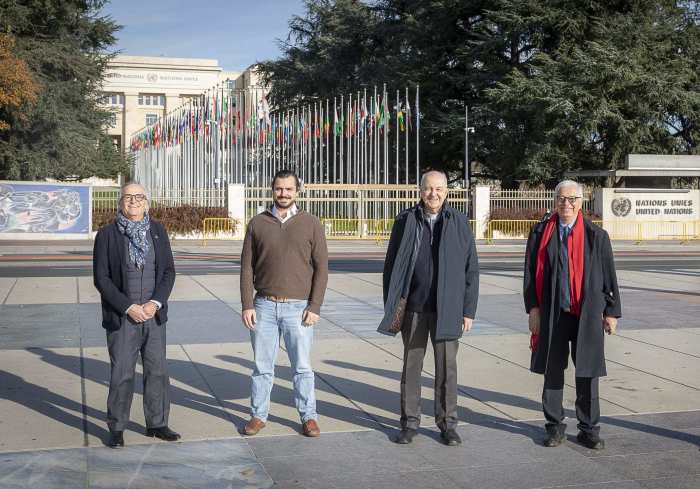Swiss court suspends Geneva worship ban seen as unjustly 'targeting religious groups'

Churches in Geneva can now reopen after a court in Switzerland suspended the canton’s total ban on religious services and events which was introduced on Nov. 1 to prevent the spread of the novel coronavirus.
The Swiss Constitutional Chamber of the Canton of Geneva is yet to decide whether the ban is a violation of the right to freedom of religion after a group of concerned citizens filed a legal challenge against it. But the suspension “indicates that the ban is not proportionate and means that religious services and gatherings are now permitted until a final judgment is handed down,” the Christian legal firm Alliance Defending Freedom International, which supported the case, said in a statement.
“The Chamber indicated that the likelihood of the case ultimately succeeding is “high or very high,” added the legal group, which has offices in Geneva.
The canton’s Nov. 1 COVID-19 order banned all religious gatherings other than small funerals and weddings. Other public secular gatherings, including demonstrations and professional choir practices, were allowed to take place, however.
The Chamber noted that the canton failed to demonstrate that places of worship had contributed to any COVID-19 outbreak.
“Given that other public gatherings are still permitted, we do not see the proportionality of this restriction — it targets religious groups in a discriminatory way,” Samuel Sommaruga, on whose behalf the legal challenge was filed, said, according to Catholic News Agency. “That is why we decided to challenge it in court.”
Switzerland has had nearly 345,000 confirmed cases of COVID-19 with more than 5,300 deaths, as of Sunday, among a population of 8.5 million, according to the Johns Hopkins University Coronavirus Research Center.
After the court’s order, the Catholic Church in Geneva announced that public masses will restart, but with a maximum capacity of 50 people, and all precautionary measures will be taken, including social distancing and the wearing of masks.
“Religious freedom is a fundamental human right and governments seeking to restrict it carry the burden of proving the restriction is truly necessary and that a less restrictive approach would not work,” ADF International’s legal counsel Jennifer Lea said.
“Favoring commercial establishments over religious services is not only discriminatory but ignores the robust protection that exists in national and international law for religious freedom,” Lea added.
Steve Alder, the Geneva-based lawyer who filed the case, said: “Switzerland has a good track record in protecting the religious freedom of its citizens. It is a poster child of democracy and human rights. That makes it all the more worrying to see a total ban on all religious gatherings and events in such a drastic form. It is one of the broadest bans of its kind in Switzerland and most of Europe where similar bans have been successfully challenged.”
Many churches in the United States are also fighting legal battles with their counties or states for their religious freedom to resume in-person services while following all safety measures.




























